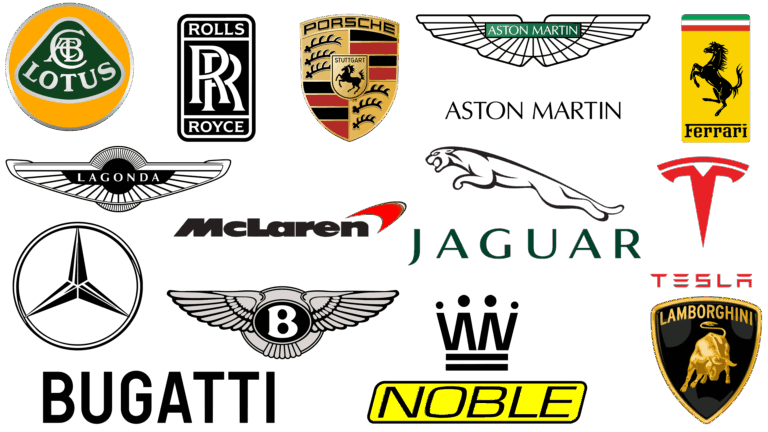Benz & Cie.: The Genesis of the Automobile – Exploring the First Car Brand
Benz & Cie.: The Genesis of the Automobile – Exploring the First Car Brand cars.truckstrend.com
Introduction: Defining the First Car Brand and Its Enduring Significance
When we speak of the "First Car Brand," we are not merely referring to an arbitrary manufacturer; we are delving into the very genesis of the automotive industry. This title belongs unequivocally to Benz & Cie., founded by Karl Benz in Mannheim, Germany. Established in 1883, Benz & Cie. stands as the pioneering force behind the first commercially available automobiles, fundamentally reshaping human mobility, industry, and society itself. Before Benz, personal motorized transport was an inventor’s dream; after Benz, it became a tangible reality that would grow into a global phenomenon.
Benz & Cie.: The Genesis of the Automobile – Exploring the First Car Brand
The importance of the First Car Brand cannot be overstated. It represents the crucial leap from experimental prototypes to mass-produced vehicles, laying the groundwork for every car manufacturer that followed. It signifies the birth of a new era of personal freedom, economic expansion, and technological innovation. Understanding the First Car Brand is not just a historical exercise; it’s an exploration of the foundational principles that still drive the automotive world today.
The Genesis of the Automobile: Defining the First Car Brand
The journey to establish the First Car Brand began not in a grand factory, but in the workshop of a brilliant engineer, Karl Benz. Benz had a singular vision: to create a reliable, self-propelled vehicle powered by an internal combustion engine. His relentless dedication culminated in the Benz Patent-Motorwagen, unveiled in 1886. While not the first internal combustion engine or the first vehicle, it was the first automobile in the modern sense – a completely self-contained unit designed specifically for personal transport, rather than a modified carriage.
The formal establishment of Benz & Cie. Rheinische Gasmotoren-Fabrik in Mannheim in 1883 was initially for producing stationary gas engines. However, it was within this company that Benz’s automotive dreams took flight. The Patent-Motorwagen, a three-wheeled vehicle, was revolutionary. It featured a single-cylinder, four-stroke engine, electric ignition, a differential gear, and a water-cooling system – all pioneering elements.
The public demonstration of the Patent-Motorwagen was met with skepticism, but its first long-distance journey, undertaken by Karl’s wife Bertha Benz in 1888 without his knowledge, proved its practicality and reliability. This daring trip from Mannheim to Pforzheim and back (approximately 106 km each way) not only showcased the vehicle’s capabilities but also effectively served as the world’s first automotive road test and marketing campaign, generating immense public interest and paving the way for the commercial success of the First Car Brand.
Pioneering Engineering and Early Models of the First Car Brand
The early years of the First Car Brand were marked by continuous innovation and refinement. Karl Benz’s approach was methodical and focused on engineering excellence.
Key Engineering Innovations:

- High-speed Internal Combustion Engine: Benz developed an engine that was relatively light yet powerful enough for propulsion, a significant departure from stationary engines.
- Electric Ignition: A reliable ignition system was crucial for starting and running the engine consistently.
- Differential Gear: This allowed the rear wheels to turn at different speeds when cornering, essential for stable and controlled movement.
- Tubular Steel Frame: A lightweight yet robust chassis provided the structural integrity for the vehicle.
- Evaporative Cooling System: Managing engine heat was a challenge, and Benz’s system was an early solution.

Evolution of Models:
Following the initial Patent-Motorwagen (Model I, II, III), Benz & Cie. rapidly evolved its offerings.
- Benz Velo (1894): This was arguably the world’s first production car. Lighter, simpler, and more affordable than its predecessors, the Velo was produced in significant numbers (around 1200 units by 1902), making it accessible to a wider audience. Its design influenced many early car manufacturers.
- Benz Victoria (1893): This was the first four-wheeled automobile from Benz, addressing stability concerns of the three-wheeled design. It featured pivot-axle steering, another crucial invention by Benz.
- "Comfortable" and "Ideal" Models: Benz continued to refine its designs, offering vehicles with increasing levels of power, comfort, and reliability, catering to a nascent but growing market for personal transportation.

These early models, though primitive by today’s standards, represented incredible feats of engineering for their time. They established the fundamental layout and principles that would define automobile design for decades to come.
The Profound Impact and Societal Benefits of the First Car Brand
The emergence of the First Car Brand ushered in an era of unprecedented change, bringing about profound societal benefits and overcoming significant challenges.
Benefits to Society and Industry:
- Revolution in Transportation: The most immediate impact was the transformation of personal and commercial transport. Horses, while reliable, were slow, limited in range, and required significant care. The automobile offered speed, endurance, and efficiency, opening up new possibilities for travel and commerce.
- Birth of an Industry: Benz & Cie. didn’t just build cars; it laid the foundation for the entire automotive industry. This included the development of related sectors like fuel production, road construction, repair services, and eventually, a vast supply chain for components.
- Economic Growth: The automotive industry became a colossal engine for economic growth, creating millions of jobs globally and driving innovation in materials science, manufacturing techniques, and engineering.
- Increased Personal Freedom: The automobile granted individuals unprecedented freedom of movement, enabling travel for leisure, work, and social connection beyond the confines of rail lines or horse-drawn routes.
- Urban and Suburban Development: The ability to commute longer distances facilitated the growth of suburbs and altered urban planning, as people were no longer tied to living within walking or public transport distance of their workplaces.
Challenges Faced by the First Car Brand:
The path of the First Car Brand was not without obstacles:
- Public Skepticism: Many initially viewed the automobile as a noisy, unreliable, and dangerous novelty. Benz and his team had to contend with widespread doubt and even fear.
- Lack of Infrastructure: There were no paved roads designed for automobiles, no gas stations, and no repair shops. Early motorists had to carry their own fuel and tools, navigating rough terrain.
- Regulatory Hurdles: Early laws were often restrictive, with some areas requiring a person to walk in front of the vehicle waving a red flag to warn pedestrians.
- High Production Costs: Manufacturing these early vehicles was complex and expensive, limiting initial accessibility to the wealthy.
- Technological Limitations: Early engines were prone to overheating, breakdowns, and were relatively inefficient compared to later designs.
Despite these challenges, the perseverance of the First Car Brand proved the viability of the automobile, laying the groundwork for its eventual global adoption.
Navigating the Legacy: Considerations for Engaging with the First Car Brand (Historical Context)
While you can’t walk into a dealership and buy a new "First Car Brand" today, its legacy is very much alive. For enthusiasts, historians, and the curious, engaging with the First Car Brand involves understanding its historical context, seeking out surviving examples, and appreciating its profound impact.
Practical Advice for Engaging with the First Car Brand’s Legacy:
- Visit Automotive Museums: The most accessible way to experience the First Car Brand is through museums. The Mercedes-Benz Museum in Stuttgart, Germany, is paramount, housing original Patent-Motorwagen models and extensive exhibits on Benz & Cie.’s history. Other major automotive museums worldwide often feature replicas or early vehicles inspired by Benz’s designs.
- Study Primary Sources: Delve into historical documents, original patents, and early automotive journals. Understanding the mindset and challenges of the pioneers provides invaluable insight.
- Attend Classic Car Shows (with a Historical Focus): While rare, some meticulously restored early vehicles or high-quality replicas occasionally appear at prestigious classic car events. These offer a glimpse into the physical presence of early automobiles.
- Read Comprehensive Histories: Numerous books and academic papers detail the life of Karl Benz and the founding of Benz & Cie. These provide detailed narratives and technical specifications.
- Understand Restoration Challenges: If you ever encounter an opportunity to see or learn about the restoration of a truly early automobile, appreciate the immense skill and historical knowledge required. Parts are non-existent, and original materials must be painstakingly recreated.
Tips for Appreciating Early Automotive Technology:
- Simplify Your Perspective: Don’t compare early cars to modern ones. Instead, marvel at what was achieved with limited technology and resources.
- Focus on the "Why": Understand the problems Karl Benz was trying to solve (e.g., self-propulsion, steering, power transmission).
- Recognize the Incremental Progress: The automotive industry didn’t leap from horses to modern cars overnight. It was a series of brilliant, incremental innovations, many pioneered by the First Car Brand.
The Evolution and Enduring Spirit of the First Car Brand
The story of the First Car Brand, Benz & Cie., does not end with its early successes. In 1926, faced with the economic turmoil following World War I and seeking greater market strength, Benz & Cie. merged with Daimler-Motoren-Gesellschaft (DMG), founded by Gottlieb Daimler and Wilhelm Maybach. This merger created Daimler-Benz AG, and its vehicles began to be marketed under the iconic brand name Mercedes-Benz.
The name "Mercedes" originated from the daughter of Emil Jellinek, a prominent automobile dealer and enthusiast who raced DMG vehicles. The combination of "Mercedes" with "Benz" created a powerful and enduring symbol of automotive excellence.
The spirit of the First Car Brand, however, lives on within Mercedes-Benz. The company continues to embody the pioneering spirit, commitment to engineering, and relentless pursuit of innovation that characterized Karl Benz’s original vision. From the Patent-Motorwagen to today’s electric vehicles and autonomous driving research, the lineage is clear: a dedication to pushing the boundaries of what’s possible in personal mobility.
Conceptual Value Table: The First Car Brand (Benz & Cie. Historical Assets)
It is important to clarify that a "price table" for the First Car Brand (Benz & Cie.) in a consumer sense is not applicable, as these are historical artifacts, not current production models. The value of these items is measured in their historical significance, rarity, and collectible status. The table below provides a conceptual overview of their historical and intrinsic value rather than a modern retail price list.
| Aspect of "First Car Brand" (Benz & Cie.) | Description & Historical Significance | Current "Value" (Conceptual/Collectibility) | Notes on Acquisition/Appreciation |
|---|---|---|---|
| Benz Patent-Motorwagen (Original) | The world’s first true automobile (1886). The genesis of the entire industry. Extremely rare, only a handful of originals survive. | Priceless / Multi-Million USD (if ever available) | Primarily found in museums (e.g., Mercedes-Benz Museum, Deutsches Museum). Not available for purchase. |
| Early Benz Production Models (e.g., Velo, Victoria) | First commercially produced cars (1894 onwards). Laid the groundwork for mass production. Rare, but more exist than Patent-Motorwagen. | High Six to Low Seven Figures USD (for authentic, well-preserved examples) | Extremely rare at auction. Acquisition is for serious, high-net-worth collectors or institutions. Significant restoration costs likely. |
| Original Benz & Cie. Documentation/Patents | Blueprints, patents, sales brochures, corporate records. Insights into early design, manufacturing, and marketing. | High Five to Low Six Figures USD (depending on rarity & content) | Acquired by archives, museums, or private collectors specializing in historical documents. |
| Period Memorabilia/Ephemera (Logos, Advertisements) | Early branding materials, advertisements, photographs. Reflects the public perception and marketing efforts of the time. | Hundreds to Thousands of USD (depending on rarity & condition) | More accessible for collectors interested in automotive history without acquiring a vehicle. |
| High-Quality Replicas/Recreations | Modern, meticulously crafted functional replicas of the Patent-Motorwagen or early models. Built for display or historical events. | High Five to Low Six Figures USD | Commissioned by museums or private collectors who wish to experience the form and function without owning an original. |
| The Brand "Mercedes-Benz" (Legacy) | The direct descendant and embodiment of the First Car Brand’s spirit of innovation and luxury. | Immeasurable (as a global brand value) | Continuously evolving, representing the enduring impact of Benz & Cie.’s foundational work. Accessible through purchasing modern Mercedes-Benz vehicles. |
Frequently Asked Questions (FAQ) about the First Car Brand
Q1: What is considered the "First Car Brand"?
A1: The First Car Brand is Benz & Cie., founded by Karl Benz in 1883. It produced the Benz Patent-Motorwagen in 1886, which is widely recognized as the world’s first true automobile designed specifically for personal transport.
Q2: Who invented the first car?
A2: Karl Benz is credited with inventing the first practical automobile, the Benz Patent-Motorwagen, in 1886.
Q3: Was Benz & Cie. the only early car manufacturer?
A3: No, other pioneers like Gottlieb Daimler (who independently developed his own automobile and founded Daimler-Motoren-Gesellschaft) were also active around the same time. However, Benz & Cie. holds the distinction of being the first established company to produce and sell automobiles.
Q4: How many cars did the First Car Brand produce initially?
A4: Karl Benz produced only a few units of the Patent-Motorwagen. Later, the Benz Velo (starting in 1894) became the world’s first production car, with approximately 1,200 units sold by 1902.
Q5: What happened to Benz & Cie.?
A5: In 1926, Benz & Cie. merged with Daimler-Motoren-Gesellschaft (DMG) to form Daimler-Benz AG. The vehicles produced by the new company were marketed under the brand name Mercedes-Benz, which continues to be a leading automotive manufacturer today.
Q6: Can I buy a "First Car Brand" vehicle today?
A6: Original vehicles from the very early years of Benz & Cie. (like the Patent-Motorwagen) are extremely rare and primarily held in museums or by very few private collectors. They are not available for general purchase. High-quality replicas exist, but they are custom-built and also very expensive.
Q7: What was the top speed of the first car?
A7: The original Benz Patent-Motorwagen had a top speed of around 16 km/h (10 mph), though practical speeds on early roads were often much lower.
Q8: What impact did Bertha Benz have on the First Car Brand?
A8: Bertha Benz, Karl Benz’s wife, played a crucial role. In 1888, she undertook the first long-distance automobile journey without her husband’s knowledge, driving the Patent-Motorwagen over 100 km. This daring trip proved the car’s reliability, generated immense public interest, and helped overcome initial skepticism, essentially acting as the first successful marketing campaign for the automobile.
Conclusion: The Enduring Legacy of the First Car Brand
The story of the "First Car Brand," Benz & Cie., is more than just a historical footnote; it is the foundational chapter of the entire automotive saga. Karl Benz’s vision, perseverance, and engineering brilliance laid the cornerstone for an industry that would transform global society, economy, and culture. From the humble, three-wheeled Patent-Motorwagen to the advanced vehicles of today, the principles of self-propulsion, efficient engineering, and the relentless pursuit of innovation initiated by the First Car Brand continue to drive progress.
The legacy of Benz & Cie. lives on vibrantly in Mercedes-Benz, a testament to the enduring power of groundbreaking invention. Understanding the First Car Brand is to understand the very roots of modern mobility, appreciating how a single, determined individual sparked a revolution that continues to shape our world.





